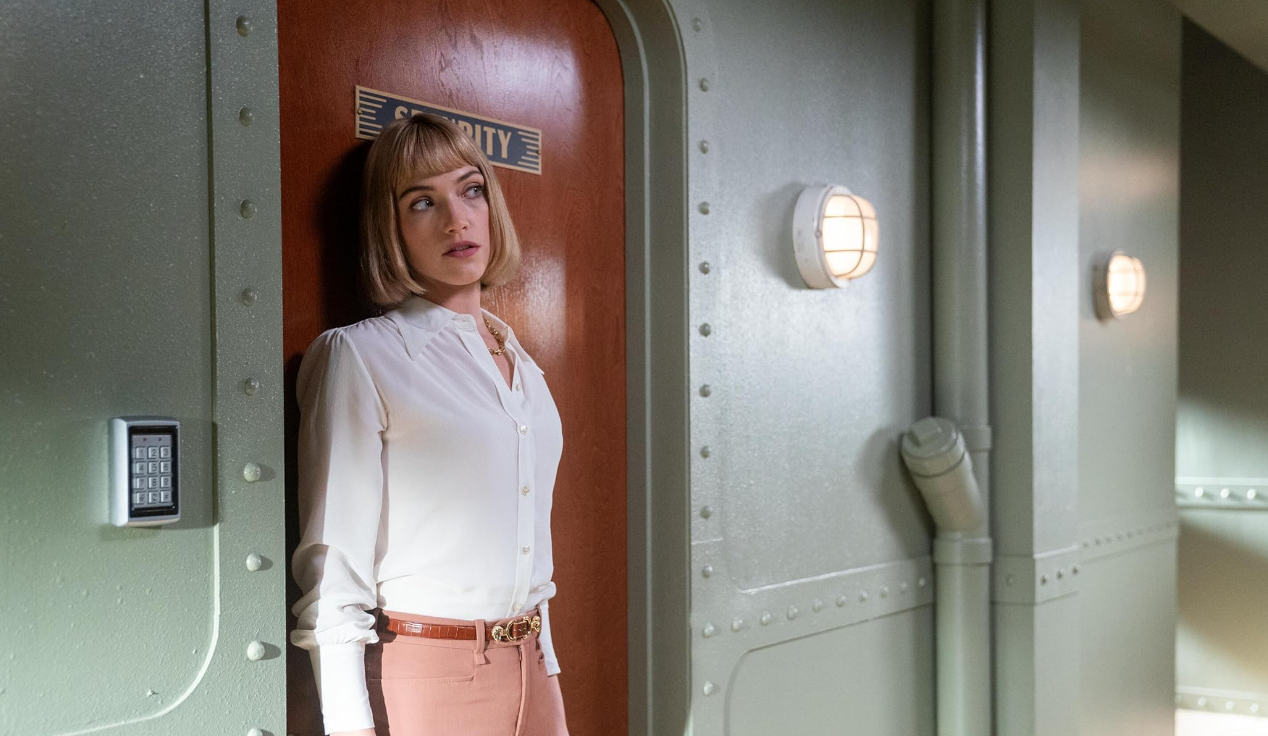
[Review] You’re Better Off Watching ‘The Exorcist’ Than ‘The Devil and Father Amorth’
-


“Pretty Little Liars: Summer School” Official Trailer Assembles the Final Girls and Starts Slashing
-


‘Trap’ – Official Trailer Previews a Wild New Horror Experience from M. Night Shyamalan
-


‘Transformers One’ Trailer – Chris Hemsworth Voices Optimus Prime in Brand New Animated Movie
-


‘Nightwatch: Demons Are Forever’ Trailer Teases the Return of Familiar Faces and an Unsettling New Killer
William Friedkin is a visionary filmmaker with the demeanor (and occasionally, the work) of a used-car salesman; The French Connection, The Exorcist and Sorcerer alone make him worthy of installation in the cinematic firmament, even if many of his subsequent films – and his willingness to raze and reimagine the first three each time a new commercial opportunity presents itself – sometimes borders on morbid desperation. The Devil and Father Amorth, his latest, is longer than a bonus feature for the already exhaustively-presented Exorcist, but not quite long or complex enough to be the feature-length exploration of real exorcisms it aspires to be – effectively, an infomercial for his earlier work, and an exercise in self-promotion filtered loosely through what appears to be sincere curiosity about a controversial and often misrepresented religious ritual.
Beginning with a recap of Friedkin’s occult bona fides by the filmmaker himself, The Devil and Father Amorth eases into what it promises is the true story of a late Vatican exorcist and one of the cases that challenged him numerous times during his career. Friedkin ladles on the melodrama (“I learned of this completely by accident… or was it providence?”) as he builds to the exorcism of Cristina, a young Italian woman who Father Amorth has previously conducted exorcism rites on seven times, and to his credit, mostly documents the eighth in one long, mostly unbroken take. The seemingly unvarnished footage is persuasive, but it’s also hard to believe that the low-high “possession voice” she uses during the ceremony was not somehow sweetened; but the fact that Friedkin immediately switches to investigator afterward, asking for feedback about the exorcism from medical professionals, is where the documentary actually gains (some of) the credulity it’s seeking.
In particular, utilizing neurosurgeons and psychiatric experts to opine about the validity of Cristina’s experience underscores the persistent ambiguity of “possessions” with regard to more conventional medical procedures. None of them rule out the possibility that surgery or psychiatric conditioning might alleviate her symptoms, for example, but they also concede that there are few clear-cut diagnoses that would sufficiently explain her behavior. Further, they importantly highlight the relevance of not just her own belief system but that of her family, whose members are in the room during the exorcism and seem to unilaterally believe this is not just a valid procedure but the appropriate one. Conversely, Friedkin later speaks with clergymen who seem to take the footage at face value, and later, beg off questions of whether they would conduct an exorcism themselves, claiming that invoking the Devil is a confrontation above their spiritual pay grade.
The open-minded curiosity with which Friedkin approaches his subject makes much of the film a fascinating experience, but he undermines its impact by closing with a sequence in which he makes plans to interview Cristina about a year after the exorcism he witnessed that culminate in a much more traditionally bombastic confrontation in a church that he did not record. Recounting it “from memory,” Cristina crawled across the floor, spoke in frightening voices and then demanded he and his collaborators turn over or destroy the footage they previously gathered. Perhaps unsurprisingly, his description is paired with a moody montage of footage that splices in a few moments of Cristina’s actual exorcism but basically looks like the exact same kind of ham-fisted stuff that Exorcist imitators have employed for generations.
Sadly, this sort of poisons everything else that came before, or if nothing else, betrays the notion that this was ever really meant to be an earnest look at a controversial topic. There’s a reason many people don’t believe in demonic possession – namely, because too many accounts are second- and third- and fourth-hand, not recorded, and you’ll forgive me if I have more faith in Friedkin’s abilities as a storyteller and emotional manipulator than an honest observer of actual events. Ultimately, The Devil and Father Amorth is at best a curio, a huckster’s convincing case for something you probably have already decided whether or not you believe in; but either way, you’re probably better off watching The Exorcist than this, because at least they got everything that happened in that particular story on camera.

Movies
‘Drop’ – Violett Beane Joins the Cast of Christopher Landon’s New Thriller

Christopher Landon (Happy Death Day, Freaky) is staying busy here in 2024, directing not only the werewolf movie Big Bad but also an upcoming thriller titled Drop.
The project for Blumhouse and Platinum Dunes is being described as a “fast-paced thriller,” and Deadline reports today that Violett Beane (Truth or Dare) has joined the cast.
Newcomer Jacob Robinson has also signed on to star in the mysterious thriller. Previously announced, Meghann Fahy (“White Lotus”) will be leading the cast.
Landon recently teased on Twitter, “This is my love letter to DePalma.”
Jillian Jacobs and Chris Roach wrote the script.
Michael Bay, Jason Blum, Brad Fuller and Cameron Fuller — “who brought the script in to Platinum Dunes” — are producing the upcoming Drop. Sam Lerner is an executive producer.
THR notes, “The film is a Platinum Dunes and Blumhouse production for Universal.”







You must be logged in to post a comment.